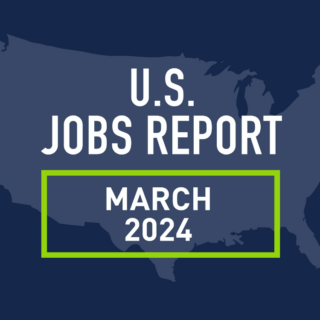The Office for National Statistics released its October Labour Market Bulletin which reports on the three months of June, July and August 2018. The bulletin reports 83,000 jobs were added in those three months with the unemployment rate holding steady at 4.0 per cent. The report shows that average weekly earnings for employees in the UK in nominal terms increased by 3.1 per cent over the last year.

The Numbers
83,000: The economy added 83,000 jobs over the June-August 2018 period.
4.0%: The unemployment rate remained unchanged from the previous bulletin at 4.0 per cent.
3.1%: Wages increased 3.1 per cent over the last year.
The Good
Increased competition for workers pushed wage growth to the highest level in the UK since the recession ten years ago. The UK hasn’t seen 3.1 per cent wage growth since the final three months of 2008, the period when the government had to bail out UK banks following the collapse of Lehman Brothers.
There were 1.36 million unemployed people which is 47,000 fewer than for March to May 2018 and 79,000 fewer than for a year earlier. The unemployment rate at 4.0 per cent has not been lower since February 1975. Of people 16- to 64-years-old, 75.5 per cent were working in the UK, up from 75.1 per cent a year earlier.
For June to August 2018, the unemployment rate for those aged from 16 to 24 years was 10.8 per cent, the lowest youth unemployment rate since comparable records for unemployment by age group began in March to May 1992.
The Bad
There were some signs of weakness in the report, with employment falling slightly from the previous report and for the first time since the autumn of last year. And while wage growth has started to pick up, the Financial Times reports, “The past decade has been the worst for UK real incomes since the mid-19th century and, on current trends, real wages will not double until 2099, the Resolution Foundation noted in a report published on Tuesday. In the period from 1945 to 2002, real wages doubled on average every 29 years.”
Due primarily to concerns over Brexit, Great Britain fell to two places to number 8 on the World Economic Forum’s Global Competitive Index. As The Guardian reports, “Britain has dropped two places to eighth in an influential global competitiveness index, with the risk of Brexit further damaging its international standing…While Britain remains the fourth most competitive economy in Europe behind Germany, Switzerland and the Netherlands, the WEF suggested that it could slip further behind because Brexit stood to damage its attractiveness to international buyers and sellers of goods and services.”
“Brexit … will by definition weaken the United Kingdom’s markets component as integration with the EU is rolled back,” the report said.
“The WEF said Britain had slipped in the 2018 ranking due to a deterioration in domestic labour mobility, which measures the extent to which people move between the different regions of a country to find work.”
The Unknown
Uncertainty over Brexit terms continues with some economists warning of the possibility of no formal deal being agreed to before the exit deadline of March next year. As The Economist notes, “the timetable is slipping, and there is a growing risk of no deal at all. The main reason is that Theresa May, Britain’s prime minister, has rejected a key part of the EU’s draft withdrawal agreement, a planned backstop to ensure that, no matter what happens to a future trade deal between Britain and the EU, there is no hard border with physical customs controls between Northern Ireland and the Irish Republic.
The issue of the Irish border has bedevilled talks from the start. The EU’s guidelines for negotiations, published in March 2017, made it one of three points that needed to be settled in the withdrawal agreement before talks could begin on future trade relations (the other two were settling how much Britain owed for outstanding EU obligations and enshrining the rights of EU citizens in Britain to stay). Last December Mrs. May agreed with the EU that, while the intention was to avoid frontier controls through a comprehensive free-trade deal, a backstop solution was needed to ensure no hard border in any circumstances. The problem is that the two sides have different views on how such a backstop should be legally designed.”

![[On-Demand] AI in Recruiting: Hype, Ethics & Best Practices](https://www.peoplescout.com/wp-content/uploads/2024/03/ai-webinar-1-320x320.jpg)
